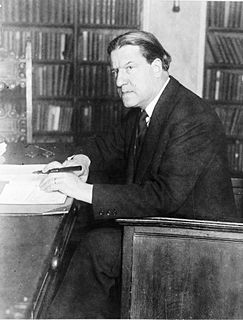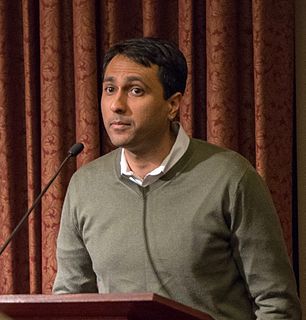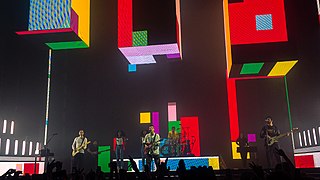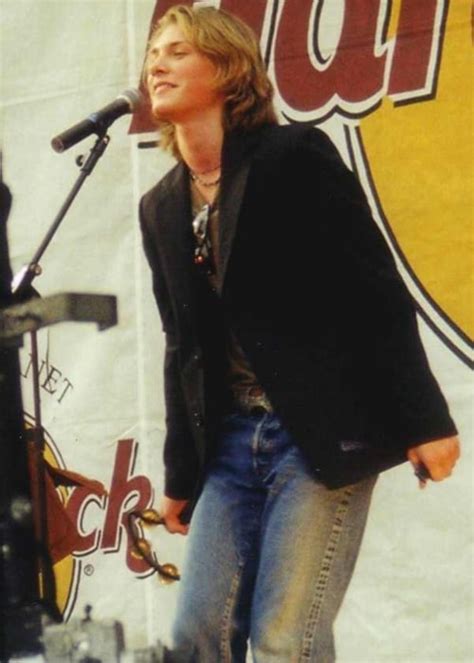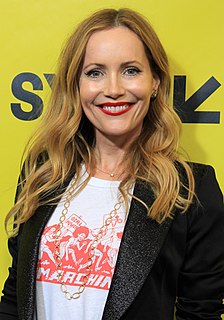A Quote by David Duke
They're trying to exterminate our race. I think, probably in a moral sense, the Jewish people have been a blight. I mean as a whole, not every Jew. And they probably deserve to go into the ashbin of history. But saying that and actually shooting or killing people in masses, are two different things. I'm not advocating extermination. I think the best thing is to resettle them in someplace where they can't exploit others. And I don't think they can live among themselves, I really don't.
Quote Topics
Actually
Advocating
Among
Been
Best
Blight
Deserve
Different
Different Thing
Different Things
Every
Exploit
Extermination
Go
History
Jew
Jewish
Jewish People
Killing
Live
Masses
Mean
Moral
Others
Our
People
Race
Really
Saying
Sense
Shooting
Someplace
Them
Themselves
Thing
Things
Think
Trying
Two
Two Different Things
Whole
Related Quotes
I make a difference between genocide and Holocaust. Holocaust was mainly Jewish, that was the only people, to the last Jew, sentenced to die for one reason, for being Jewish, that's all. Genocide is something else. Genocide has been actually codified by the United Nations. It's the intent of killing, the intent of killing people, a community in this culture so forth, but no other people has been really interested.
You tend to think that your time is either the best or the worst, and then when you have a sense of history, you'll realize actually, no, there were times things were quite gusty in the world. I mean, just think, nowadays most people will say they support the advancement of women, woman has been equal, the fact that we're so aware of the gustiness, in a sense, also speaks about the heightening of our own sensitivity.
I think that young people are going to continue on with the work on pluralism for two reasons, really. One is because it's the reality of the world that they live in, and I think young people from different backgrounds are asking themselves, what does it mean for me to be a Buddhist and friends with a Baptist?
You feel like you want something, but you don't actually know what that is. I remember waking up the other night and really craving something, but not knowing what it is. That feeling has been prominent throughout my whole life. I think I try and fill that thing with lots of different things. I can't really stay still. I can't really not be stimulated. It's kind of a search of constant stimulation through other people, substances and stuff. I think that's what our lyrical content is about.
I think we're always trying to avoid tropes. And I think that "Game of Thrones" has almost made killing people a cliche. For us, it wasn't about that. For six episodes, it's hard to invest in people, and I think when you kill a main character on television it really needs to mean something. So we certainly had talked about that, and I think we managed to juggle the ball to make a gripping, interesting and compelling finale. We feel that we didn't have to go there at this point because we had such few episodes.
When people come to you with problems or challenges, don't automatically solve them. As a mama bear, you want to take care of your cubs, so you tend to be protective and insulate them against all those things. But if you keep solving problems for your people, they don't learn how to actually solve problems for themselves, and it doesn't scale. Make sure that when people come in with challenges and problems, the first thing you're doing is actually putting it back to them and saying: "What do you think we should do about it? How do you think we should approach this?".
For us what we're trying to do is find the right balance of creating a space for emotion that leads to a sense of empathy and solidarity rather than a sense of division. In my most grandiose moments I think of HuffPost as a platform that makes solidarity possible, that really thinking about the emotional content of stories is a way to help people who think, or who have been manipulated to think, that they're interests are opposed to one another, that they actually are aligned in a fundamental way and they're actually in the same boat.
I think that at the time, when I was first pregnant, it was hard to make the transition from being totally self-involved to not being able to think about myself at all. At the end of the day, I think that's the best thing that someone can go through. I think it makes you a better person. It doesn't mean that people who don't go through that aren't good people. For me, it was a good thing.



